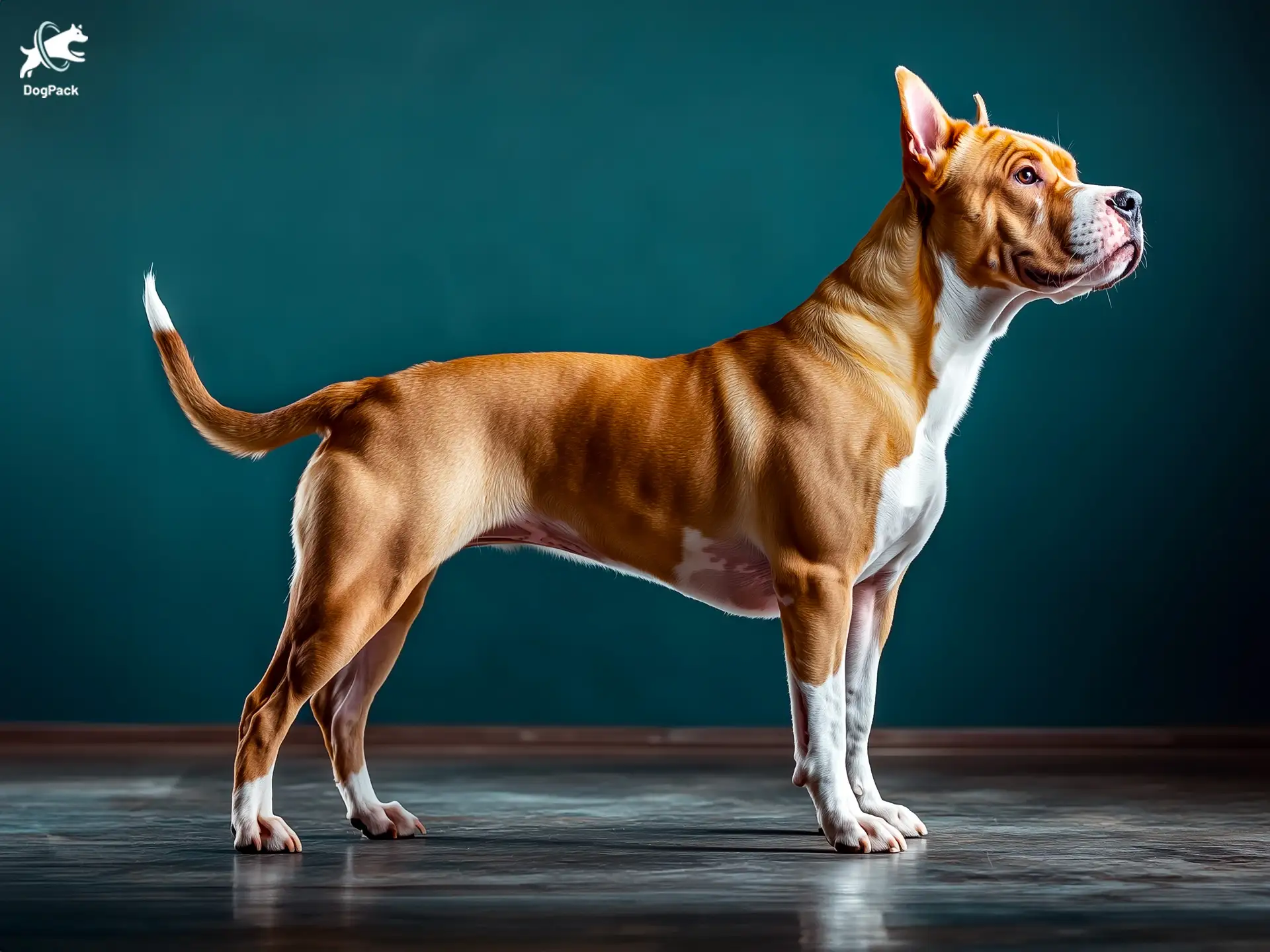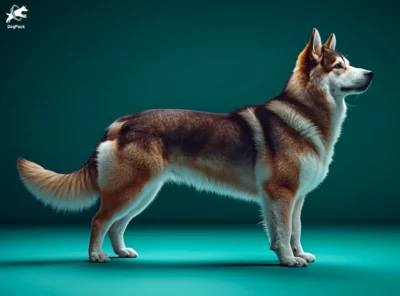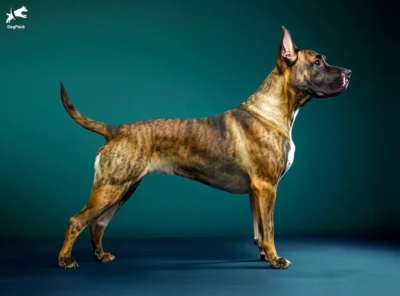Akita Pitbull Dog Breed Info & Overview
Ever heard of the Akita Pitbull? This unique hybrid blends the steadfast loyalty of the Akita with the spirited energy of the Pit Bull. If you’re looking for a devoted companion that’s both protective and affectionate, stick around—you’re in for a treat!
Characteristics
Pictures
Breed History
When two powerful breeds like the Akita and the Pit Bull Terrier come together, you get a canine with a rich heritage. The Akita hails from Japan, where it was bred for hunting large game like bears. The American Pit Bull Terrier, on the other hand, originated in the United States, known for its strength and tenacity.
The Akita Pitbull hybrid is relatively new, emerging over the past few decades as designer breeds gained popularity. Breeders aimed to combine the Akita’s loyalty and protective instincts with the Pit Bull’s energy and affection. This mix results in a well-rounded dog that’s both a guardian and a loving family member.
Though not recognized by major kennel clubs, the Akita Pitbull has been steadily gaining fans. Owners appreciate the blend of traits that make this hybrid both a devoted companion and a vigilant watchdog.
Temperament, Personality
The Akita Pitbull is known for its unwavering loyalty. This dog forms strong bonds with its family and will go to great lengths to protect them. If you’re looking for a furry friend who’s always got your back, this breed fits the bill.
Energetic and playful, the Akita Pitbull thrives in active households. They enjoy interactive games, long walks, and any activity that keeps them engaged. However, early socialization is key, as they can be wary of strangers and other animals if not properly introduced.
While affectionate with family members, they may not be the best choice for homes with very young children. Their high energy and strength mean they can accidentally knock over little ones. Supervision and training can mitigate these issues, making them suitable for families with older kids.
Physical Characteristics
Physically, the Akita Pitbull is a striking dog. They often inherit the muscular build of the Pit Bull combined with the sturdy frame of the Akita. Their height ranges from 18 to 24 inches, and they can weigh between 45 to 70 pounds.
Their coat can vary but is usually short to medium in length, with a dense undercoat inherited from the Akita side. Colors can range from brindle, fawn, black, to combinations thereof. Their eyes are often dark and expressive, reflecting their intelligent and alert nature.
Distinctive features may include a broad head, strong jaws, and erect or semi-erect ears. Their tail might be curled like an Akita’s or straight like a Pit Bull’s, adding to their unique appearance.
Health Issues
Like any breed, the Akita Pitbull can be prone to certain health issues. Hip dysplasia is common due to their size and active nature. Regular veterinary check-ups can help detect and manage this condition early on. The OrthopedicFoundation for Animals provides resources on hip dysplasia and other genetic conditions.
They may also be susceptible to skin allergies, particularly if they inherit sensitive skin from the Pit Bull side. A proper diet and grooming routine can alleviate most skin-related problems.
Another concern is bloat, a serious condition affecting larger breeds. Feeding smaller, frequent meals and avoiding vigorous exercise after eating can help reduce the risk. Always consult your vet for breed-specific health advice for the Akita Pitbull.
Grooming Needs
Grooming an Akita Pitbull is relatively straightforward but requires consistency. Their coat sheds moderately throughout the year, with heavier shedding during seasonal changes. Regular brushing, at least once a week, helps control loose hair and keeps their coat healthy.
Bathing should be done as needed, typically every 4-6 weeks, to maintain skin health. Use a dog-friendly shampoo to prevent skin irritation. Don’t forget routine care like nail trimming, ear cleaning, and dental hygiene.
Due to their potential for skin sensitivities, it’s crucial to check for any rashes or irritations during grooming sessions. Addressing these issues promptly will keep your Akita Pitbull looking and feeling their best.
Exercise Requirements
High energy is a hallmark of the Akita Pitbull. They require at least 1 to 2 hours of exercise daily to keep them mentally and physically satisfied. Activities can include brisk walks, jogging, fetch, or agility training.
Without sufficient exercise, they may become bored and resort to destructive behaviors. This breed thrives when given a job or purpose, similar to other Working Dogs.
Remember, the Akita Pitbull is not just about physical exertion. Mental stimulation through puzzle toys or obedience training can keep their sharp minds engaged and happy.
Training Tips
Training an Akita Pitbull can be both rewarding and challenging. They are intelligent but can be stubborn at times. Consistent, positive reinforcement methods work best with this breed.
Early socialization is crucial. Expose your Akita Pitbull to various people, animals, and environments to build confidence and reduce aggression risks. This will help them become well-rounded adults.
Given their protective nature, setting boundaries is essential. Obedience training should focus on commands like “stay,” “leave it,” and recall to ensure control in various situations.
Nutrition, Diet
Feeding your Akita Pitbull a balanced diet is vital for their health and energy levels. High-quality dog food rich in protein supports their muscular build. They typically require 2.5 to 3.5 cups of food per day, split into two meals.
Monitor their weight to prevent obesity, which can exacerbate health issues like hip dysplasia. Consult your veterinarian to tailor a diet plan specific to your dog’s age, weight, and activity level. The Association of American Feed Control Officials offers guidelines on pet food nutrition.
Avoid overfeeding and be cautious with treats. Including omega-3 fatty acids can benefit their coat and skin, especially if they have sensitivities.
Adoption, Breeders
If you’re considering adding an Akita Pitbull to your family, adoption is a compassionate option. Check local shelters and rescue groups that specialize in hybrid breeds. Websites like Petfinder can help you find dogs in need of a home.
For those opting to buy from a breeder, ensure they are reputable and prioritize the health of their dogs. Ask for health clearances and meet the puppy’s parents if possible. A responsible breeder will be transparent and informative.
Remember, owning an Akita Pitbull is a long-term commitment. Do your research to ensure you’re getting a healthy and well-socialized pup.
Family Pet?
The Akita Pitbull can make an excellent family pet for the right household. Their loyalty and protective instincts mean they’ll be devoted to their family members. However, due to their size and energy, they may be better suited to families with older children.
They generally get along with other pets if raised together, but early socialization is key. Their prey drive can be high, so caution is advised around smaller animals.
Overall, if you’re an active family willing to invest time in training and exercise, the Akita Pitbull could be a great addition to your home.
Right For You?
Is the Akita Pitbull the right fit for you? If you lead an active lifestyle and have experience with strong-willed breeds, this hybrid could be a match made in heaven. They require time, training, and plenty of exercise.
Apartment living may not be ideal due to their size and energy levels. A home with a securely fenced yard provides space for them to roam and play.
Ultimately, the Akita Pitbull thrives with owners who can offer leadership, affection, and an active environment.
Conclusion
In summary, the Akita Pitbull is a loyal and energetic hybrid that offers both companionship and protection. They’re best suited for active owners who can meet their exercise and training needs. If you’re looking for a devoted, spirited dog and are prepared for the commitment, the Akita Pitbull might just be your new best friend.
FAQs
-
Are Akita Pitbulls good with other dogs?
Akita Pitbulls can get along with other dogs if socialized early and properly trained. Their protective instincts may cause them to be wary, so supervision is recommended during interactions.
-
How big do Akita Pitbulls get?
They typically stand between 18–24 inches tall and weigh between 45–70 pounds. Size can vary depending on the traits inherited from the parent breeds.
-
Do Akita Pitbulls shed a lot?
Yes, they have moderate to high shedding due to their dense coat. Regular brushing helps manage shedding and keeps their coat healthy.
-
Are Akita Pitbulls aggressive?
With proper training and socialization, they are not inherently aggressive. However, their protective nature requires responsible ownership to ensure they are well-behaved.
-
How much exercise does an Akita Pitbull need?
They need at least 1 to 2 hours of exercise daily. Activities should include both physical and mental stimulation to keep them satisfied.
Breed Ratings
The Akita Pitbull is quite intelligent and responds well to consistent training methods.
They enjoy playtime and thrive on interactive activities with their family.
High energy levels mean they need plenty of exercise to stay happy.
Moderate shedding requires regular grooming to manage.
A strong prey drive may make them chase smaller animals if not trained.
Grooming is manageable but needs consistency due to their coat type.
They can be stubborn; patience and positive reinforcement are key.
They prefer company and may experience separation anxiety if left alone too long.
Moderate barkers, they may alert you to strangers or unusual noises.
Generally low drooling, but can vary among individuals.
Can be friendly with other dogs if properly socialized from a young age.
Generally healthy but watch for breed-specific health issues.













